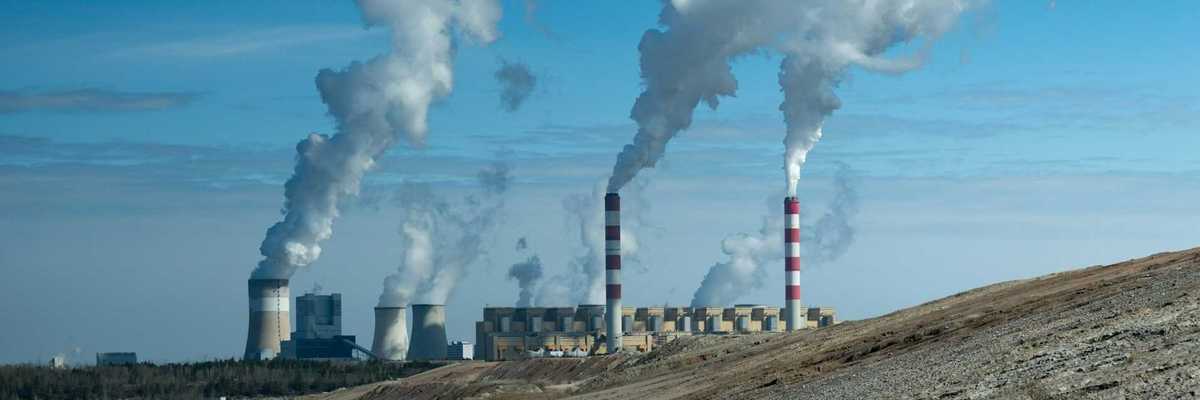climate denial
Climate change denial persists among US lawmakers
Nearly a quarter of the U.S. Congress, all Republicans, deny climate change, despite growing public concern over global warming.
In short:
- A study reveals that 123 members of Congress, including 100 in the House and 23 in the Senate, deny human-caused climate change.
- These lawmakers have received a total of $52 million in campaign donations from the fossil fuel industry.
- Although public concern over climate change is increasing, many Americans are overrepresented by climate deniers in Congress.
Key quote:
“It’s harder to deny the science when it’s so much more apparent that the climate is warming, that extreme weather is getting worse and happening constantly. Nobody can deny the science with a straight face, given everything.”
— Naomi Oreskes, history of science professor, Harvard University
Why this matters:
The significant number of climate-denying lawmakers undermines efforts to address climate change despite scientific consensus and growing public alarm. This disconnect poses challenges to advancing meaningful climate policies and addressing the urgent impacts of global warming.
Dutch and American climate deniers team up as Europe leans right
A climate denial conference in the Netherlands shows growing ties between Dutch and American groups, reflecting a broader rightward shift in Europe.
Nina Tea Zibetti, Alexander Beunder, Merel de Buck and Jilles Mast report for DeSmog.
In short:
- Clintel's fifth anniversary conference showcased speakers like Gregory Wrightstone and Willie Soon, emphasizing CO2's purported benefits and mocking renewable energy.
- The event underscored growing connections between Dutch climate deniers and U.S.-based organizations like the CO2 Coalition, which has financial backing from major American oil interests.
- The rise of far-right political parties in the Netherlands, such as PVV and BBB, aligns with Clintel's anti-regulation stance, giving climate denial more media attention and political influence.
Key quote:
"I embrace that high carbon lifestyle […] CO2 is showing huge, huge benefits and so we should celebrate it."
— Gregory Wrightstone, climate science denier and executive director of CO2 Coalition
Why this matters:
The strengthening ties between Dutch and American climate deniers could undermine international climate efforts, promoting policies that ignore or downplay the dangers of climate change. This trend reflects a broader political shift that could have significant environmental and policy implications globally.
Biden condemns climate denial, unveils new heat protections for workers
President Biden denounced climate change denial and announced new regulations to protect workers from extreme heat, as California and Oregon prepare for record-breaking temperatures.
Lisa Friedman and Noah Weiland report for The New York Times.
In short:
- President Biden emphasized the dangers of ignoring climate change and highlighted the deadly impact of extreme heat, proposing new regulations for worker protection.
- The proposed OSHA regulation would mandate that employers monitor workers and provide rest areas and water when the heat index reaches 80 degrees or higher.
- Environmental groups and labor unions praised the protections, while industry groups argued the rule would be costly and hard to implement.
Key quote:
“Anyone who wilfully denies the impacts of climate change is condemning the American people to a dangerous future and either is really, really dumb or has some other motive.”
— U.S. President Joe Biden
Why this matters:
Extreme heat is the deadliest weather-related hazard in the U.S., causing more deaths than floods, hurricanes and tornadoes combined. As climate change intensifies, extreme heat poses greater health risks, making protective regulations increasingly important for worker safety and public health resilience. Read more: We are undercounting heat-related deaths in the US.
Kenyan farmer leads climate change denial movement
Kenyan farmer Jusper Machogu has gained notoriety online for his stance against man-made climate change, attracting donations and support from Western fossil fuel advocates.
In short:
- Jusper Machogu, a 29-year-old Kenyan farmer, has gained a large online following by promoting climate change denial and fossil fuel use in Africa.
- Despite receiving donations from Western fossil fuel interests, Machogu claims his views are independently formed.
- Climate experts warn that Machogu's misinformation could undermine climate action in Africa, a continent highly vulnerable to climate impacts.
Key quote:
“Because we still have low climate literacy levels in Africa and in Kenya, and if that conspiracy theory spreads to communities or to people, it could just really undermine climate action.”
— Dr. Joyce Kimutai, climate scientist
Why this matters:
Africa is one of the most vulnerable continents to climate change. Spreading misinformation about climate science can hinder essential climate action, worsening the continent's susceptibility to severe weather events.
Trump aims to reduce environmental oversight and mocks climate concerns
Former President Trump revealed plans to cut the Interior Department and mocked climate change action during a recent interview.
In short:
- Trump plans to cut the Interior Department and other environmental agencies if he returns to the White House.
- He criticized environmental regulations, claiming they hinder business and praised his past efforts to expedite energy projects.
- Trump's spokesperson blamed President Biden for damaging the American oil and gas industry, despite record production under Biden’s administration.
Key quote:
“When they say that the seas will rise over the next 400 years — one-eighth of an inch, you know. Which means, basically you have a little more beachfront property, OK. Who knows?”
— Donald Trump, former president
Why this matters:
Trump's proposed cuts to environmental agencies could significantly impact regulations that protect natural resources and public health. The debate highlights the ongoing conflict between economic development and environmental protection in national policy discussions. Read more: Scientists probe ancient history of the East Antarctic Ice Sheet and find unsettling news about sea level rise.
DeSantis eliminates climate change from Florida's energy policy
Florida will no longer prioritize climate change in energy decisions, despite facing severe environmental threats, after Governor Ron DeSantis signed new legislation.
In short:
- The new law removes most mentions of climate change from state law, bans offshore wind turbines, and weakens regulations on natural gas pipelines.
- Supporters claim the law focuses on energy affordability, but climate advocates argue it is symbolic and politically motivated.
- Despite legislative changes, Florida's renewable energy, particularly solar, continues to grow due to environmental and public pressure.
Key quote:
“It feels like we’ve taken a major step backward and are no longer recognizing the dangers of greenhouse gases."
— Raymer Maguire, director of campaigns and policy for the CLEO Institute
Why this matters:
This legislation could undermine efforts to combat climate change in a state highly vulnerable to its impacts, such as stronger hurricanes and extreme heat, highlighting a significant policy shift with potential national implications. Read more about Florida's history of "don't ask, don't tell" climate strategy: With Ian, treat climate like an 'active shooter.'
Florida moves to remove climate change mentions from its laws
Florida is set to largely eliminate climate change references from state legislation, despite facing significant environmental challenges.
In short:
- A proposed bill in Florida aims to remove the majority of climate change mentions from state laws, amid efforts to address sea level rise and hurricane threats.
- The bill includes measures like banning offshore wind energy and relaxing natural gas pipeline regulations, signaling a reluctance to confront the root causes of climate-related impacts.
- Critics argue the bill sends a message that climate change is not a state priority, potentially stifling green industry development and ignoring public concern over climate impacts.
Key quote:
"Florida is on the front lines of the warming climate crisis, and the fact that we’re going to erase that sends the wrong message."
— Yoca Arditi-Rocha, executive director of the CLEO Institute
Why this matters:
This move may influence how climate issues are addressed, prioritized and funded, possibly leading to a reduced focus on climate change mitigation and adaptation strategies. If enacted, it could also set a precedent for other states, affecting national climate policy discourse and action, with implications for environmental regulation, energy policy and public awareness of climate issues.
From vaccines to elections to climate change, denial is doing lasting damage to the country.









